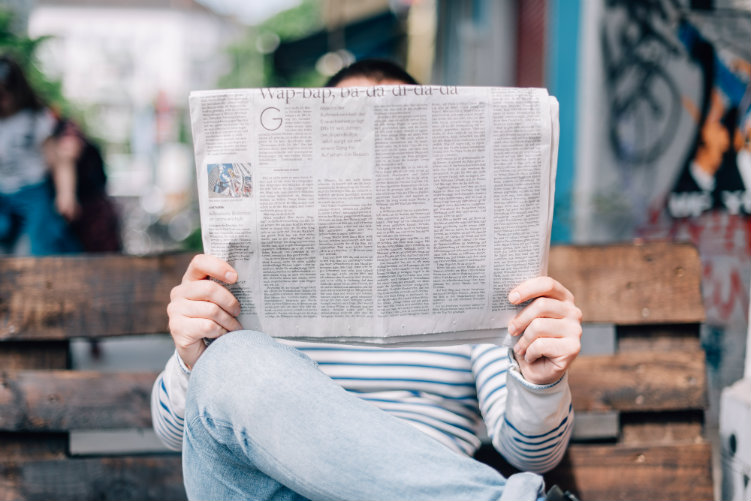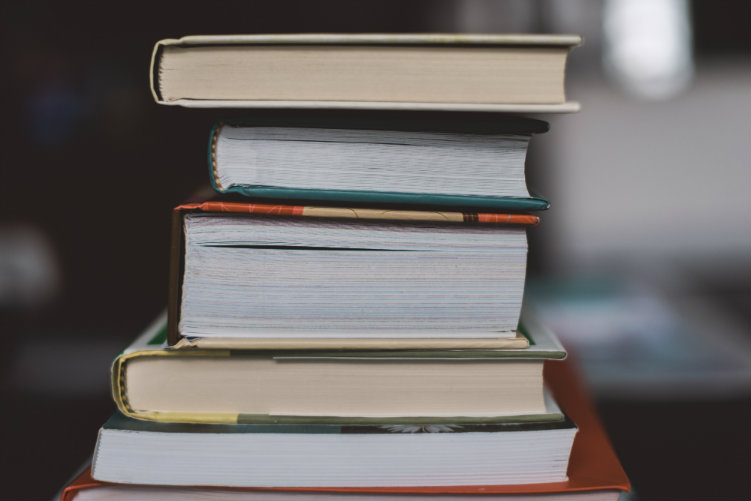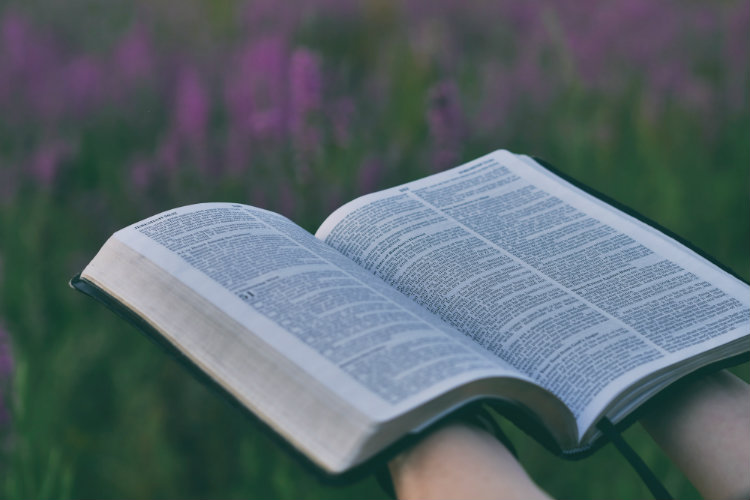Feature | The Self-Conscious Reader
Whenever you read anything, you are made conscious of your class. This is especially true if you have a working-class background. I was struck by this recently while reading Alberto Manguel’s essay collection Into the Looking Glass Wood in which he discusses the Argentina of his adolescence. In particular, I was struck by Manguel’s crisis that arose when he discovered that a former teacher of his, the man who made him a reader, turned out to have been an informant for the country’s military junta. To read about Manguel’s life in Buenos Aires is to read the life of a middle-class boy whose love of reading, if not indulged by his family, was to put him at the dinner table of a school friend whose mother was a novelist for a living. Growing up, none of my friends, much to my continuing regret, were the children of novelists. Reading was an activity that, at least outside of the home, you were made to feel self-conscious about.
The self-consciousness of the working-class reader is even developed at school. It begins with that most quotidian activity: reading the newspaper. Even here you are taught to learn the difference between good and bad taste – the right sort of reading and the wrong sort.
I grew up in a house where the daily newspaper was the Mirror. A watershed moment in my formation as a self-conscious reader came during the Junior Certificate cycle of English when we learned about the concept of registers. We learned especially how different registers were appropriate to different situations or occasions and the ways in which different registers of language worked. Part of this was looking at a story in the news as presented through the eyes of a tabloid and through a “quality” broadsheet.
The way the lesson was set up left you in no doubt about which of the two registers was the preferred one. It is only after this that I really became aware of the gap between the two. Having lived in a house where only the Mirror was read, I was suddenly faced with the prospect that not only was this not the right thing to be reading, but that it was somehow shameful. My favourite thing personally in the Mirror for many years was actually a football comic strip by Kerber & Black, the rest of the paper I cared little for. But as the emerging self-conscious reader, I sought out what I thought then was a “quality” paper. While it was printed in those days still as a broadsheet, I decided to start giving the Irish Independent a go.

My brief love affair with the Independent ended in college with the discovery of the Irish Times and the Guardian. I also took up the fashion, self-consciously of course, that if I was going to read papers of a kind of liberal bent, then this should be balanced out with something a bit more traditional, The Times. It helped that in those days, the student newsagents in UCC sold newspapers at 50 cent a pop, meaning you could get three newspapers worth of reading for a little over the price of one newspaper in a normal shop. This was all part of the self-conscious trying on of hats that goes with attending university, but it was, like all such reading, deadly serious in its intent. The self-conscious reader forever chasing up the cultural capital which was their peers’ inheritance.
Much of what I read when I was younger was self-consciously fashioned in two ways – I read books about and or by working-class people – Orwell, Robert Tressell, the novels of Steinbeck (little then did I know the use or value of the voice of working-class women or POC). The working-class reader – the self-conscious reader – is always aware, often painfully so, that they fall between two stools. So the books by the “greats” hint at a desire to pass as respectably middle-class, the other books – those about working-class life and politics – are a kind of self-flagellation – a reminder of where your origins lie, to ground yourself. It is almost a perversion. Sometimes they become one and the same thing. They morph into one another over time. This reading list I chose, I chose it based on what? Where did I go to learn what were the books that you had to read? My local library of course, and The Book Centre in Waterford.
Not just books, or newspapers, but magazines too. I read the NME, Q and Uncut music magazines. I spent a fortune on them. Charles Shaar Murray’s book on Jimi Hendrix, Crosstown Traffic, introduced me to the idea of the well-written book aimed at the serious general reader (whoever they are). Music led to books and they circled around each other. Classic rock of the 60s led me to the Beat poets and to Bob Dylan, to jazz and on and on.

Elsewhere in the shop there was a section – that’s still there, I think, “Greatest Books of the Century” – and the century was very much the twentieth. I used it as a jumping off point, and it was a useful enough one. There was a section devoted to classics of earlier centuries too. It was and sometimes still is overwhelming to stand there and think of all the things I have yet to read. This intense feeling of your inadequacies as a reader are perhaps best captured in the opening of Italo Calvino’s classic post-modernist novel If On a Winter’s Night a Traveller
“In the shop window you have promptly identified the cover with the title you were looking for. Following this visual trail, you have forced your way through the shop past the thick barricade of Books You Haven’t Read, which are frowning at you from the tables and shelves, trying to cow you…And thus you pass the outer girdle of ramparts, but then you are attacked by the infantry of Books That If You Had More Than One Life You Would Certainly Also Read But Unfortunately Your Days Are Numbered. With a rapid maneuver you bypass them and move into the phalanxes of the Books You Mean To Read But There Are Others You Must Read First, the Books Too Expensive Now And You’ll Wait Till They’re Remaindered, the Books ditto When They Come Out in Paperback, Books You Can Borrow From Somebody, Books That Everybody’s Read So It’s As If You Had Read Them, Too. ”
The good news is that eventually the self-conscious reader learns to feel confident in their rejection of what people expect them to read in favour of what they actually want to read.
Eventually, even the sheepish self-conscious reader develops something akin to their own taste. The difficult bit lies in figuring out how much of this taste is truly their own, and how much the result of absorbing the influences of a culture that sets the standards of taste. Many of the books I read when I was younger I read in part as developing a kind of armour – reading with a missionary zeal Dostoyevsky say, or Gabriel Garcia Marquez, or other difficult or “intellectual” writers – rather than necessarily books I wanted to read for pleasure. The books I devoured were Terry Pratchett. Pratchett was a fabulous writer who, unlike Tolkien who I also loved un-self consciously, could not be covered in a patina of intellectual discourse the way Tolkien’s fantasy could be. The series of Discworld novels was straight up hilarious. It needed no justification beyond its own existence because of the sheer power of the writing. It was easy to enjoy, but wickedly funny, as un-self conscious an expression of the joy of writing and reading you were likely to find, even for the self-conscious reader. Genuine laugh-out loud belly laughs were the hallmark of a good time with a Discworld novel.

Now I read the Irish Times un-self consciously, though I still cannot get a single Crosaire clue by myself. I read the Guardian online, so no one can see me reading it. And I happily flick through the Mirror, and look forward to buying it early in the morning when I’m back home, leaving it on my father’s place mat on our kitchen table, for him to read whenever he rouses himself from bed.
I read poetry from around the world, innovative and experimental poetry, lyric poetry. I read fantasy, and I read literary novels. I read non-fiction books – academic and popular histories; books on subjects I have no background in but whose writing I admire; I read, in other words, what I enjoy.
This is what happens to the self-conscious, the working-class reader: their education – set by those who they seek most to impress – teaches them to reject out of hand, because of its register, the place where they might actually first engage with reading – the only place perhaps.
In my house, books were read but never left lying around. They were read in the bedroom, usually at night, before going to bed. They lived on bedside lockers. Novels were not for display. They were not, in that sense, a part of the furniture of the house. No one was going to be impressed by the books being read. They weren’t on display, but the couch was often littered with this or that supplement from the Mirror. I grew up watching my parents read every day. What they read is largely immaterial. What matters is this: reading was a normalised activity in my house. It was my education that made me a self-conscious reader. The self-conscious reader is aware of what they read, and what that signifies to others around them. The world of books and learning is daunting enough. Discernment and taste are things that you should be able to develop by yourself without the weight of expectation. It shouldn’t be another thing to get “right”.

